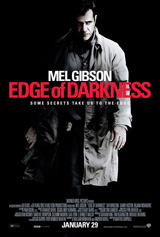Hello again! Yes, Mots Justes is back online, having survived the thesis throes. And yes, as a commenter on the post below notes, unfortunately it is well past November 4. Here’s what happened:
As noted in my last post, I decided that during the last month before my thesis was due, I could ill afford any distractions. I had to cut out anything unnecessary-i.e., anything that didn’t pay the rent. Unfortunately, that meant the blog had to go on hiatus.
MJ wasn’t the only sacrifice, however: I stopped freelancing, too (which arguably does help pay the rent, but not much). I stopped cooking, which resulted in a late-night run to Ralph’s by my desperate significant other, who never goes grocery stopping, and a fridge full of frozen pizzas, pot pies, and Lloyd’s Barbeque Pork. I stopped cleaning my house. That has yet to be remedied.
What I did do is write, as many as 1,000 words a day, which is epic for me. It was frantic. It was stressful. It was really kind of great.
At no other point in my career had my creative writing taken center stage. At no other time was it the most important thing that simply had to get done. There were no other articles to write, no other assignments to turn in, no blogs to post that took precedence over my novel. It was wonderful.
And then, with just two-and-a-half weeks to go, I got a month extension. I didn’t even ask for it; it just arrived, uninvited, in my inbox. My thesis was now due on December 3.
I expressed joy and relief at the time, of course—deadlines are the bane of any writer’s existence, and extensions are always welcome. Inside, however, all I could think was “Oh, no …”
You see, for the past year or so I had been building toward this November 3 deadline. I had put MJ on hiatus for it. I had pushed back the ship date of Southern California Review, of which I am editor-in-chief, so I wouldn’t have to turn it and my thesis in at around the same time. And truthfully, I liked the idea of handing in this major project on my birthday. Now, my blog would be offline for two months, I still had to turn in SCR and my thesis at the same time (literally on the same day), and the new due date was, well, insignificant.
Then I did what I feared I would do, what I knew I would: I stopped writing. Less than two months before my thesis was due, I didn’t write. For two whole weeks.
Yes, I could have stuck to the original deadline. I could have finished the draft by November 3 and given myself a whole extra month to revise and edit. But I don’t work that way. I don’t do anything until I absolutely have to.
Eventually, I found myself in the same position as the day the deadline was extended—running out of time and writing like mad. And again, it was great.
Today, now that my thesis is turned in, SCR is at the printer, and my gig at the Writing Center has come to an end (alas, you have to be a graduate enrolled in classes to stay on the payroll), my life looks completely differently from just five days ago, and my goal is to hang on to some of that momentum, to not stop writing again now that there’s no deadline.
I’ll explore ways to do that in tomorrow’s post. In the meantime, how have deadlines been your friend?
Caught in the ’Net
How to
- “… Write a Christmas Letter” with a dose of humor
- “… Become a Successful Copywriter With ‘Bad’ Writing”
- “… Write Sex Scenes” by Steve Almond, an interview with whom appears in the Fall 2008 edition of—here comes the shameless plug—Southern California Review.









